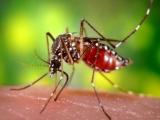Canadian health officials today reported the country's first sexually transmitted Zika virus case, the eighth country to report that type of disease spread.
Also, an international expert meeting on Zika virus began today in Paris, and researchers reported that the virus was circulating in Haiti in late 2014, before the first cases were reported in Brazil.
Sexual transmission in Ontario
The Public Health Agency of Canada (PHAC) and Ontario's health ministry said today that a patient from Ontario contracted the virus from a sexual partner who was diagnosed as having a Zika virus infection after traveling to an affected country. No other details were available, other than that the PHAC's National Microbiology Laboratory has confirmed the case.
In a statement, PHAC said the case underscores the need for travelers returning from Zika-hit countries and their sexual partners to take steps to protect themselves.
As of today, Canada has recorded 55-travel linked case plus the sexual transmission case, according to the PHAC's Zika surveillance page.
International Zika summit begins
A 2-day international Zika virus summit began today at the Pasteur Institute in Paris, which is also sponsored by the Bill and Melinda Gates Foundation and the Wellcome Trust. According to the meeting page on the Pasteur Institute's Web site, the meeting is intended to foster open collaboration and discussion, given the rapid spread of the virus.
Agenda topics include the epidemiology of the disease, neurologic complications, vaccine developments, diagnostic tests, animal models, and mosquito control.
About 600 experts from 43 countries are at the meeting, Agence France-Presse (AFP) reported today.
Marie Paule-Kieny, PhD, assistant director-general for health systems and innovation at the World Health Organization (WHO), told the group that mosquito season is approaching in Europe, which could see local transmission and more sexual transmission cases, according to the AFP report. She said two Aedes mosquito species known to transmit the virus will start to circulate as temperatures in Europe start to rise.
"The Zika emergency requires a rapid evolution of our knowledge base, concerted action, and innovation if the virus and related complications are to be addressed efficiently," she told the group.
Zika's earlier arrival in Haiti
In other news, a retrospective analysis of blood samples collected from children to probe the cause of febrile illness from May 2014 to February 2015 showed that Zika virus was circulating in Hait before the first cases were reported in Brazil.
The look back at the blood samples also revealed that the virus was in Haiti well before the first local cases were reported in the middle of January. Researchers from the University of Florida, Haiti, and Italy reported their findings today in an online edition of Public Library of Science (PLoS) Neglected Tropical Diseases.
Of 177 blood samples, 43 were positive for Zika virus, with results confirmed by viral sequencing. The team also detected dengue virus in one of samples that was positive for Zika.
The children who were infected with Zika virus were from two different schools in three different towns, with all three cases occurring the same week. The findings are consistent with an outbreak in Haiti's Gressier/Leogane region, just west of Haiti's capital, Port au Prince, the investigators reported. The children lived within a 20-mile radius of each other, and all had been sick during the same week in December 2014.
Genetic sequencing found that the virus was closely related to the one from Brazil, and an analysis of the NS5 gene suggested that the Haitian outbreak virus is part of a larger clade that includes isolates from Easter Island.
Researchers concluded that Zika epidemics seem to have complex spread patterns and that more information is needed about what fueled transmission and what the consequences were of Haiti's early outbreak.
See also:
Apr 25 PHAC statement
PHAC Zika surveillance page
Pasteur Institute Zika summit page
Apr 25 AFP story
Apr 25 PLoS Negl Trop Dis report





















